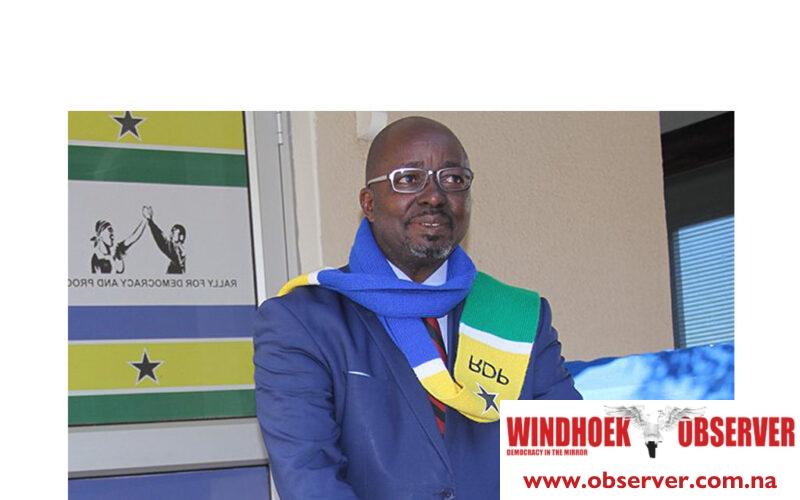Martin Endjala
The President of the Rally for Democracy and Progress (RDP), Mike Kavekotora, has called for fair elections in November 2024, emphasizing that the party is fully prepared to challenge the ruling Swapo Party.
“We at the RDP are more prepared than ever for the 2024 elections. We wish our competitors the best of luck for 2024 and urge the ruling party to ensure a level playing field in November. Our SWOT analysis identified three critical challenges: lack of funds, the emergence of new parties, and election irregularities. We have addressed these challenges, and as a result, we will approach these elections with the same determination as we did in 2009,” said Kavekotora during an update on the party’s readiness and outlook for the highly anticipated 2024 Presidential and National Assembly elections.
Kavekotora also hinted at the RDP’s plans to hold the party’s convention in May or June this year, followed by the electoral college.
In response to recent criticisms from political analysts who have suggested that the RDP is declining, Kavekotora was quick to dismiss these claims, arguing that some of these so-called political analysts are essentially proxies for the Swapo party, making predictions aligned with Swapo’s agenda.
“We don’t place much value on their predictions. They have failed to accurately predict Swapo’s willingness to manipulate elections and tend to provide Swapo with a clean bill of health. In reality, Swapo is in a precarious situation, with top leaders contemplating fleeing the country. The signs are evident. I urge the Electoral Commission of Namibia (ECN) to stop allocating votes based on Swapo’s instructions and allow Namibians to express their preferences freely,” Kavekotora argued.
The former Parliamentarian remains steadfast in his belief that RDP will continue to be a formidable force, noting that the election challenges faced by the party in 2009 and 2019 underscored the systemic bias in Namibia’s electoral process. He expressed hope that this would change in the upcoming elections.
Meanwhile, Political Analyst Henning Melber argued that Kavekotora should provide more specific evidence to support his claims.
Melber noted that while there may be analysts affiliated with Swapo, there are also many who offer critical assessments of the ruling party’s governance.
He stressed that analysts aim for objectivity, and being affiliated with a party should not impede their ability to provide impartial analysis.
Melber suggested that Kavekotora’s comments appear to be a weak excuse for the party’s lack of visibility.
Melber concluded by stating that it would ultimately be up to the political parties to campaign successfully for votes and deliver on their promises, rather than blaming analysts for their shortcomings.
Namibia’s democracy thrives on independent viewpoints, and party affiliation should not compromise integrity or the ability to critically analyze political issues.




